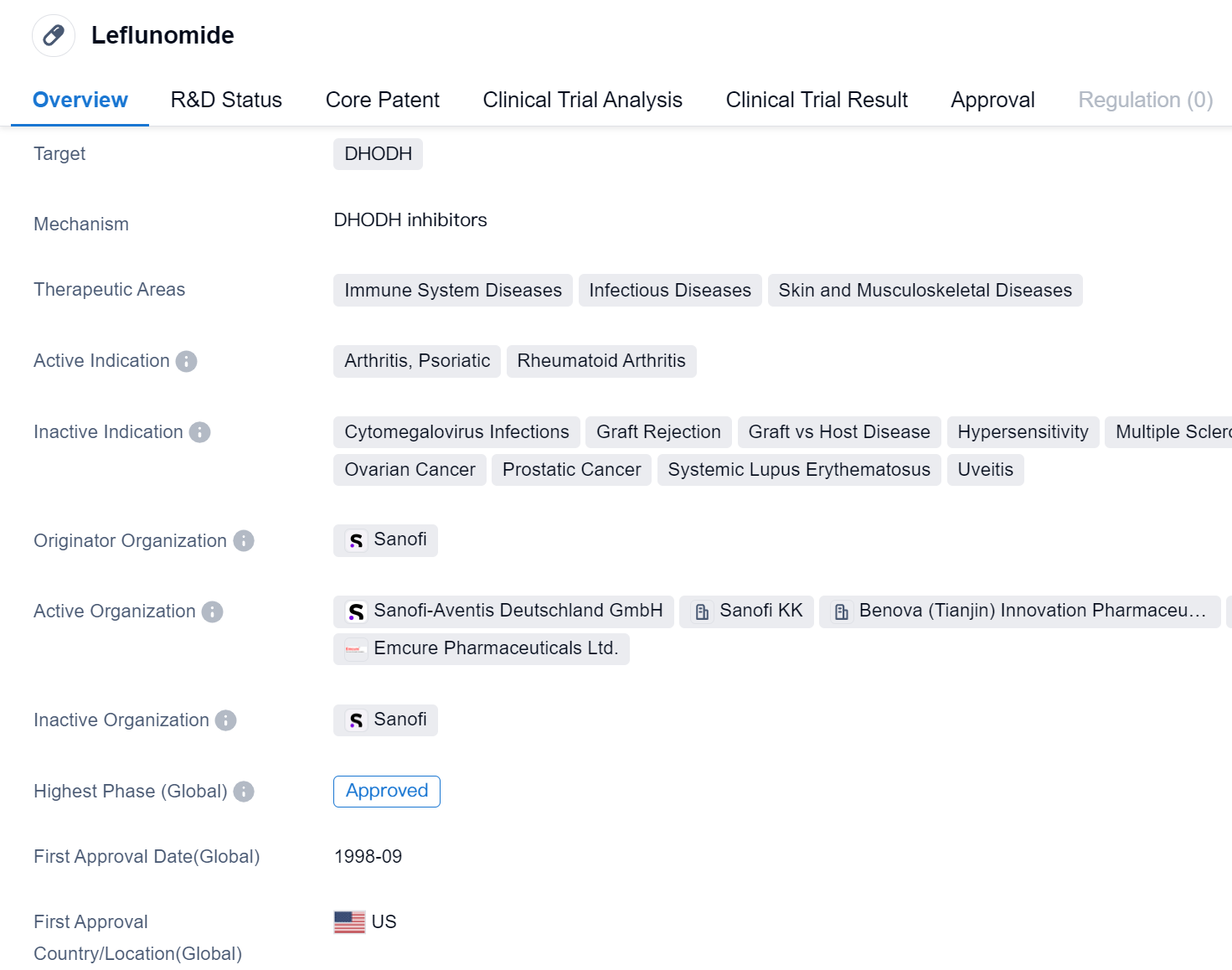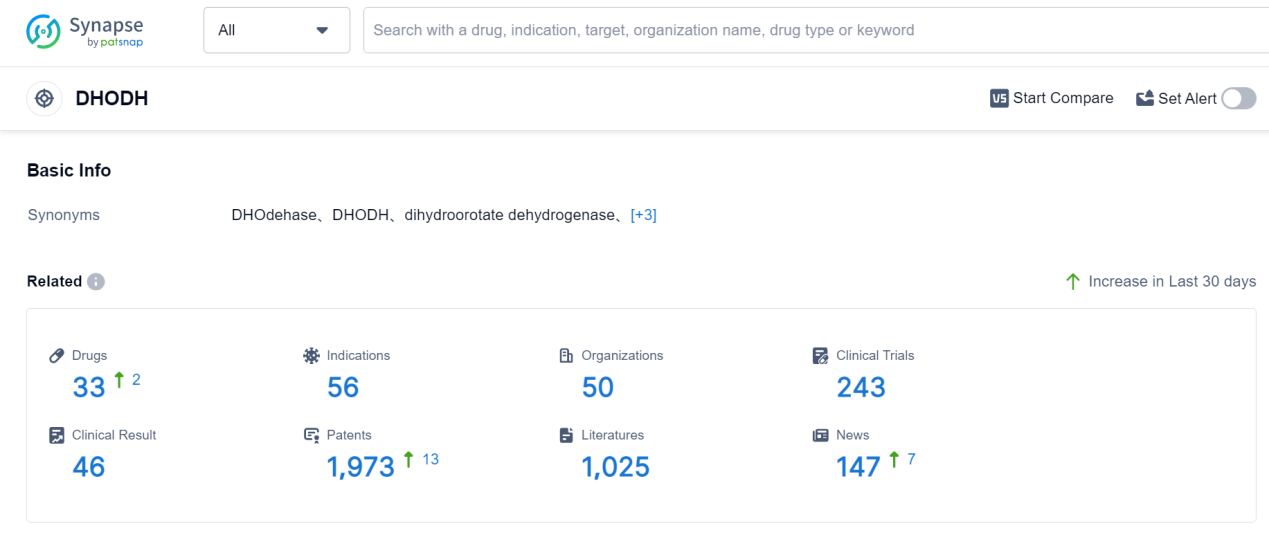Exploring Leflunomide's Revolutionary R&D Successes and its Mechanism of Action on Drug Target
Leflunomide's R&D Progress
Leflunomide is a small molecule drug that targets the enzyme dihydroorotate dehydrogenase (DHODH). It is primarily used in the treatment of immune system diseases, infectious diseases, and skin and musculoskeletal diseases. The drug has been approved for the treatment of arthritis, specifically psoriatic arthritis and rheumatoid arthritis.
Leflunomide was developed by Sanofi, a pharmaceutical company. It received its first approval in the United States in September 1998, making it available for use in patients. Since then, it has also been approved in other countries globally.
As a small molecule drug, Leflunomide works by inhibiting the activity of DHODH, an enzyme involved in the synthesis of pyrimidines, which are essential building blocks for DNA and RNA. By inhibiting this enzyme, Leflunomide helps to reduce the production of immune cells that contribute to the inflammation and joint damage seen in arthritis.
The drug has been proven to be effective in managing the symptoms of psoriatic arthritis and rheumatoid arthritis. It has been widely used in the treatment of these conditions, providing relief to patients and improving their quality of life.
Leflunomide has reached the highest phase of development which is approved globally, indicating its widespread acceptance and recognition as a safe and effective treatment option. Its approval in multiple countries further highlights its potential benefits and the confidence placed in its therapeutic value.
👇Please click on the image below to directly access the latest data (R&D Status | Core Patent | Clinical Trial | Approval status in Global countries) of this drug.
Mechanism of Action for Leflunomide: DHODH inhibitors
DHODH inhibitors are a type of drugs that target and inhibit the enzyme dihydroorotate dehydrogenase (DHODH). DHODH is an important enzyme involved in the biosynthesis of pyrimidine, which is a building block for DNA and RNA synthesis. By inhibiting DHODH, these inhibitors disrupt the production of pyrimidine, leading to a decrease in the synthesis of DNA and RNA.
From a biomedical perspective, DHODH inhibitors have shown potential in the treatment of various diseases, including cancer, autoimmune disorders, and viral infections. In cancer, these inhibitors can interfere with the rapid cell division and growth of tumor cells by inhibiting their DNA and RNA synthesis. In autoimmune disorders, DHODH inhibitors can modulate the immune response by suppressing the proliferation of immune cells. Additionally, in viral infections, these inhibitors can inhibit viral replication by disrupting the synthesis of viral nucleic acids.
Overall, DHODH inhibitors are a promising class of drugs that target an essential enzyme involved in nucleic acid synthesis. Their potential therapeutic applications make them an area of active research and development in the field of biomedicine.
Drug Target R&D Trends for Leflunomide
DHODH, or dihydroorotate dehydrogenase, is an essential enzyme involved in the de novo synthesis of pyrimidine nucleotides, which are building blocks of DNA and RNA. Found in the mitochondria, DHODH catalyzes the conversion of dihydroorotate to orotate, a crucial step in the production of pyrimidines. By regulating the availability of pyrimidine nucleotides, DHODH plays a vital role in cell proliferation, growth, and division. Due to its significance in DNA and RNA synthesis, DHODH has emerged as a potential target for therapeutic intervention in various diseases, including cancer, autoimmune disorders, and viral infections.
According to Patsnap Synapse, as of 7 Sep 2023, there are a total of 33 DHODH drugs worldwide, from 50 organizations, covering 56 indications, and conducting 243 clinical trials.
👇Please click on the picture link below for free registration or log in directly if you have a freemium account, you can browse the latest research progress on drugs, indications, organizations, clinical trials, clinical results, and drug patents related to this target
Conclusion
In summary, Leflunomide is a small molecule drug developed by Sanofi that targets DHODH. It has been approved for the treatment of psoriatic arthritis and rheumatoid arthritis, and it is used in the management of immune system diseases, infectious diseases, and skin and musculoskeletal diseases. Its approval in multiple countries and its long history since its first approval in 1998 demonstrate its effectiveness and acceptance in the pharmaceutical industry.






